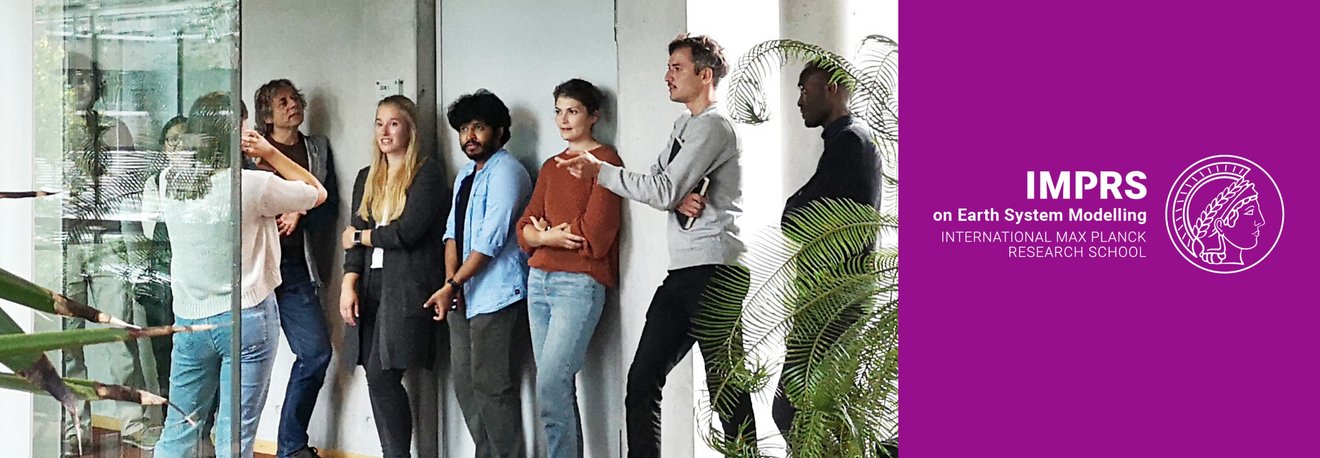The International Max Planck Research School on Earth System Modelling (IMPRS-ESM) offers a structured, interdisciplinary and international program for graduate students who want to earn a PhD degree. The main focus of our doctoral program is to advance our understanding of processes and dynamics in the Earth system as well as our prediction skills.
IMPRS-ESM is a joint program by the Max Planck Institute for Meteorology (MPI-M) and the Universität Hamburg (UHH).
As IMPRS-ESM doctoral candidate, you benefit from:
- A vital international campus and research environment, with English as working language
- High quality research facilities, including access to high-performance computing resources at the German Climate Computing Center (DKRZ)
- Being member of an international research group
- Personalized PhD supervision (Advisory Panel system) and mentoring
- Personalized support for advanced academic training
- Lively exchange with peers, supervisors and more program members when presenting your project on our annual retreat
- Financial support for your advanced academic activities such as courses and conferences – based on your individual needs and interests
- Financial security (doctoral contract) for your PhD term of 3 years
- A highly competitive annual recruitment and selection process
- Substantial administrative support by the IMPRS-ESM coordination team; you will be able to settle in quickly and focus on your research
- A doctoral degree that is awarded by the Universität Hamburg
Getting in touch
IMPRS Office
+49 (0)40 41173 - 467
office.imprs@mpimet.mpg.de
Bundesstrasse 53 | 2nd floor | room 202 (right behind the elevators)
IMPRS-ESM is a joint program by the
Max Planck Institute for Meteorology
and the
Universität Hamburg
More Content

Bjorn Stevens elected AGU Fellow
Bjorn Stevens has been elected as a Fellow of the American Geophysical Union in recognition of his exceptional scientific achievements and leadership…
![[Translate to English:] [Translate to English:]](/fileadmin/04_Kommunikation/01_Aktuelles/2025/250926_Grassl_Medaille/KHW_0897_Ausschnitt.jpg)
Hartmut Grassl Receives Medal for Art and Science from the City of Hamburg
Hartmut Grassl was awarded the Medal for Art and Science by the Hamburg Senate in recognition of his outstanding scientific achievements and…


